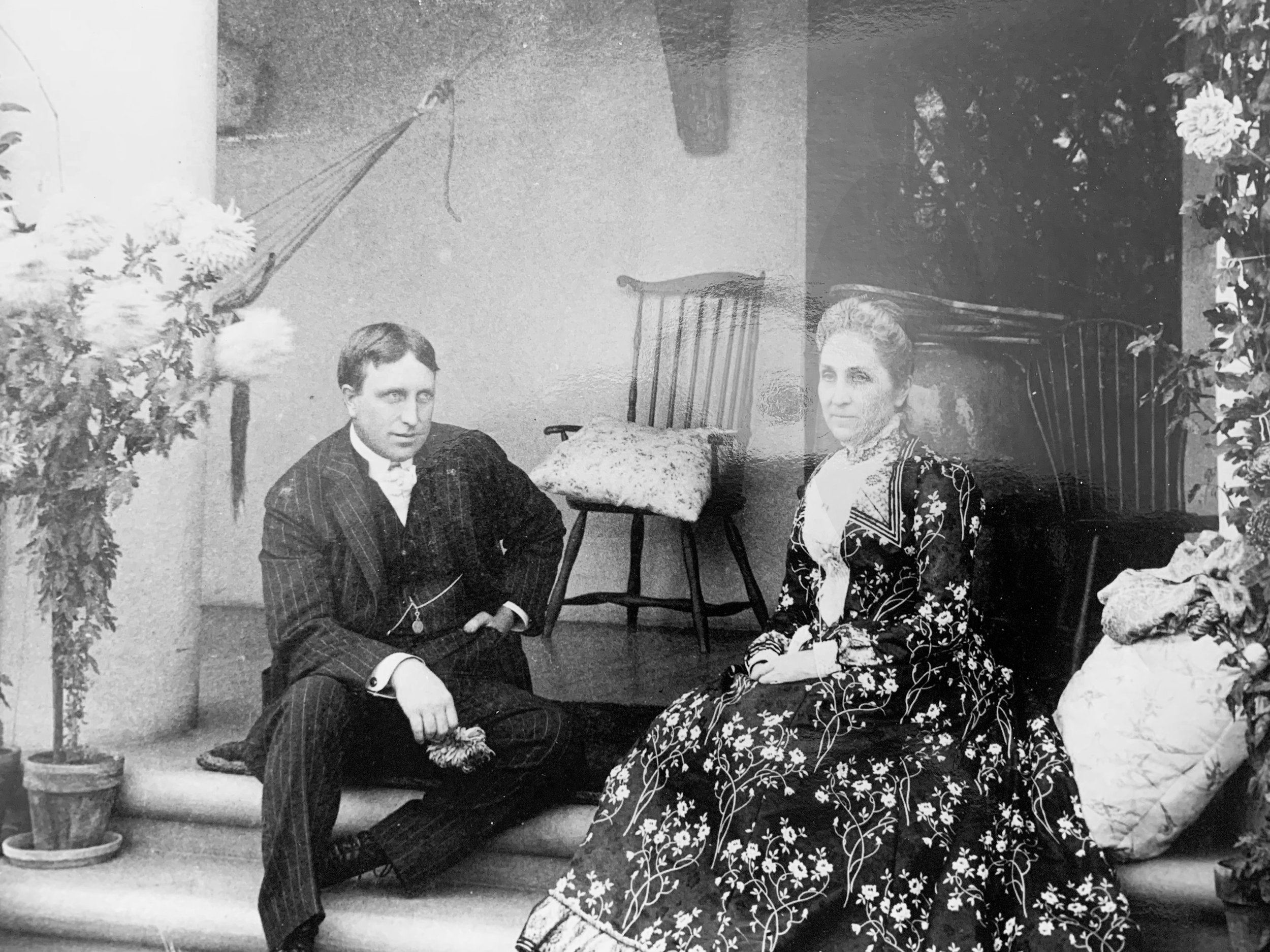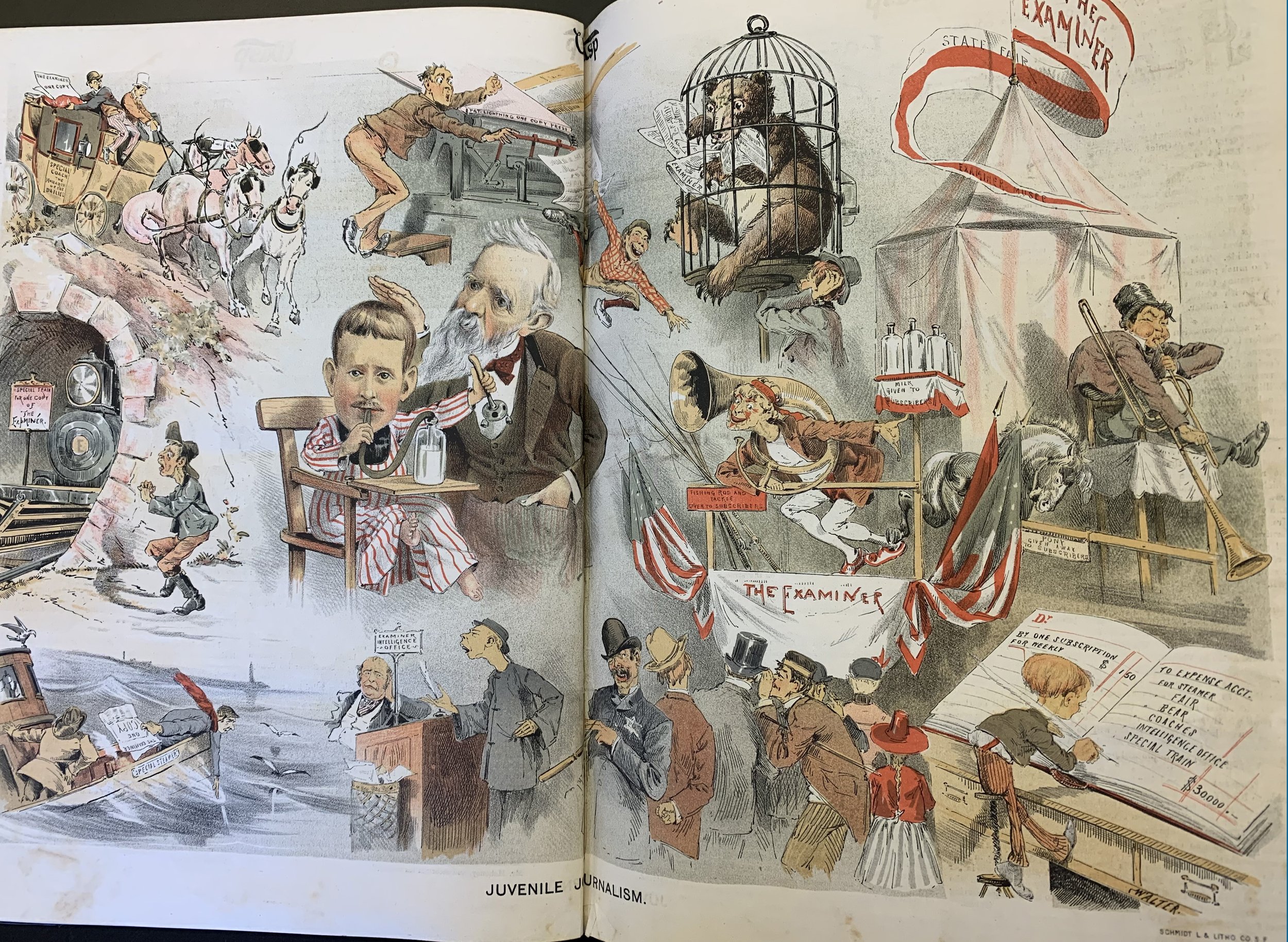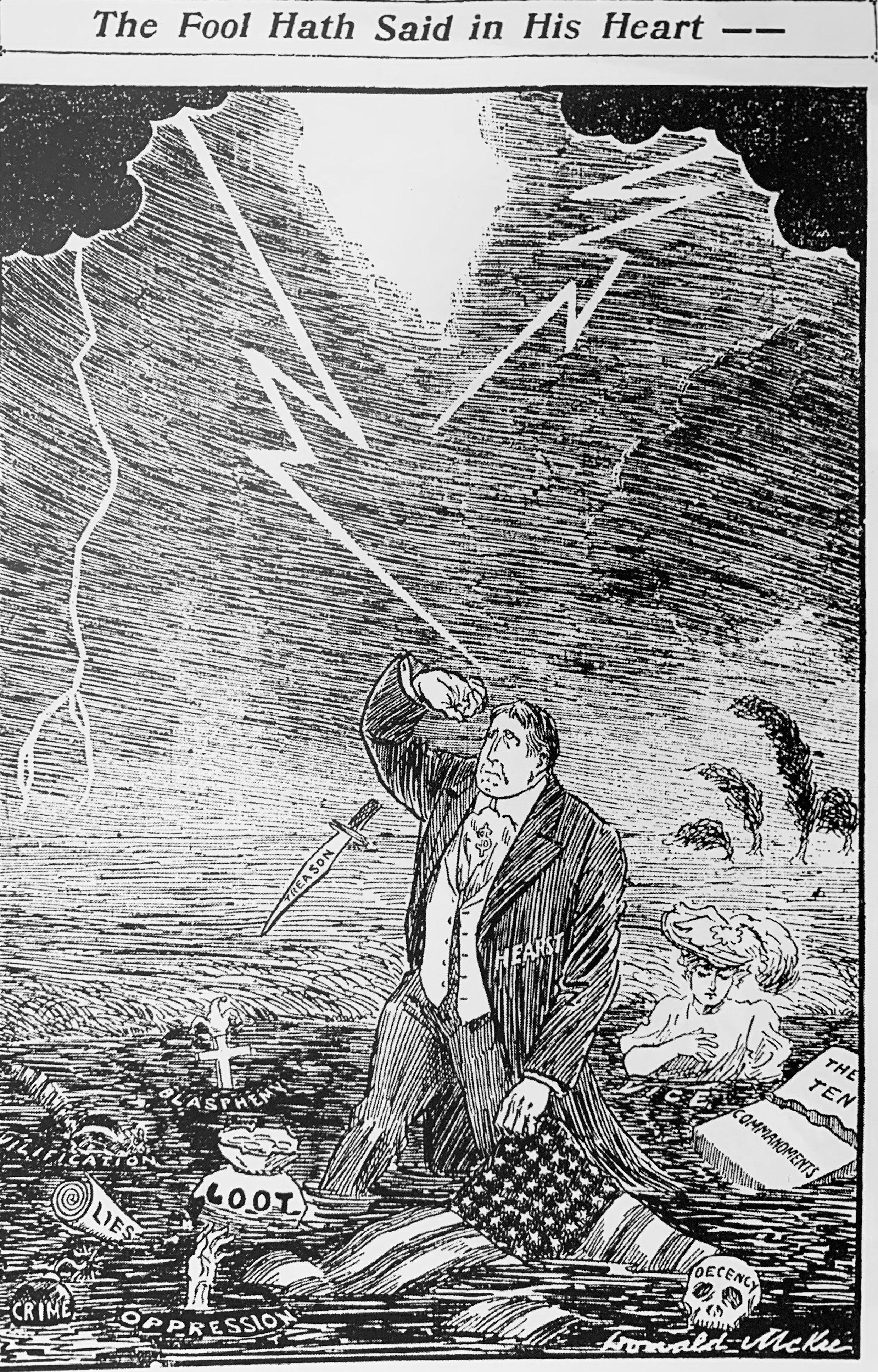Chapter 5
The Hearsts: Racial Supremacy and the Digestion of “All Mexico”
Born in San Francisco, the flamboyant media mogul William Randolph Hearst built an empire founded on a mining fortune launched by his father in the Comstock Lode. Hearst’s first newspaper, the San Francisco Examiner, challenged the primacy of the city’s other leading newspapers, growing to a media conglomerate that spanned the continent and gave the publisher unprecedented power to shape the thought of millions to his own advantage. That power enabled him to foment national belligerence and racial animosity which included his attempt to secure Hearst properties in Mexico by completing the annexation of that country begun by the U.S. in 1848. As a leading exponent of the Yellow Peril, Hearst earned the animosity of Japan.
Casa Grande on Enchanted Hill at the Hearsts’ San Simeon Ranch, of which Julia Morgan was the architect. Credit: Klaus Nahr, Wikimedia Commons.
Selected notes
For more information on all the materials cited see the further reading page.
16. A Tennessee aristocrat, Gwin made a fortune defrauding Indians of land and acquiring six hundred thousand acres of newly liberated Texas before coming to California with the specific purpose of being elected senator. See Lately, Between Two Empires, 14-19.
22. At St. Paul’s, Hearst roomed with Will S. Tevis, son of his father’s partner Lloyd Tevis and progenitor of the Bay Cities Water scheme discussed in chapter 2.
25. See “Hearst: A Portrait of the Lower Middle Class,” in Raymond Gram Swing’s Forerunners of American Fascism, 134-52. Built at the same time as the movie palaces of the 1920s, the San Simeon “castle” might be seen as a Paramount Theater built for two.
30. Hearst wanted the United States to take the Canary Islands from Spain as well, providing the United States with a secure military base in the eastern Atlantic.
37. Ferdinand Lundberg asserts that in 1906, Wall Street insiders used the New York Herald to injure Hearst politically by revealing that the Hearst estate had used the presidential campaign of William Jennings Bryan to play the stock market on the side of decline. Imperial Hearst, 86.
41. See, e.g., Aldrich, “New Country for Americans,” with attendant advertisements for American settlers. Aldrich asked rhetorically, “Can it be possible that all of our boasted enterprise and Yankee shrewdness is but a myth? Are we afraid of an imaginary border line?”
43. During a state visit to Mexico, William Randolph Hearst pledged his support of Mexico and Diaz against the attacks of others, and enthused about the investment possibilities then being opened “for the energetic and the men with capital” in the lands recently cleared of Yaquis. Mexican Herald, 23 March 1910.
46. Robinson, Hearsts, 207, citing a letter from William Randolph Hearst to Phoebe Apperson Hearst before George Hearst’s election [ 1886?]. In an undated letter of about the same time, he congratulated his mother on the splendor of her equipage in Washington as reported in the newspapers, citing the valuable publicity for the family. See also “Hearst’s Boodle Wins,” New York Times, 19 January 1887.
58. Signed editorial in Hearst newspapers, 31 July 1938. Hearst appears not to have been anti-Semitic; many of his most trusted lieutenants were Jewish, and he advocated a Jewish homeland in Africa or Palestine.
59. Mussolini held banquets in Hearst’s honor in 1930 and 1 931. See Mussolini papers, Psychological Warfare Branch (P.W .B.), report No. 46, National Archives, Suitland, Md. Ambassador to Germany William E. Dodd reported that Hearst syndicated Mussolini for a dollar a word, and that “a Pacific coast bank had loaned Hearst some millions of dollars and that this bank was in sympathy with Mussolini.” The bank was A.P. G iannini’s Bank of America. See Dodd, Ambassador Dodd’s Diary, 220-21; and Bonadio, A. P. Giannini, 134-35.
63. Neylan made the cover of Time on April 29, 1935.
67. Entire nations banned Hearst publications at various times , among them Canada, because of a Hearst campaign to annex that country.
68. Seldes, Lords of the Press, 232.
71. Signed editorial in Hearst papers, 23 July 1934 . Hearst often blamed communism, which he likened to disease and insanity, for fascism; he wrote from Germany in 1934, “Perhaps the only way to restrain anyone in an hysterical frenzy [of communism] is in a strait jacket until he recovers his sanity.” Coblentz, William Randolph Hearst, 114.
78. Winkler, William Randolph Hearst, 1. In 1 944, for example, he cabled Edward Hardy Clark about a Mexican property he wanted him to investigate: “I am very much interested in the Acapulco gold mining property for several reasons: I like gold mines and I like Acapulco.” William Randolph Hearst to Edward Hardy Clark, 10 January 1944. William Randolph Hearst papers, carton 40, Edward Hardy Clark file.
85. On February 2, 1998, nine days after the kickoff of a three-year commemoration of Marshall’s discovery of gold and the rush that followed, the1r50th anniversary of the Treaty of Guadalupe Hidalgo went almost wholly unremarked in California. On May 1, 1998, San Francisco newspapers similarly forgot the centennial of Dewey’s victory at Manila and the beginning of the Spanish-American War.
An indulgent Phoebe Apperson Hearst and her willful son, William Randolph, relax at her suburban hacienda south of San Francisco. Courtesy University of California Archives.
“Juvenile Journalism.” Young “Willie” Hearst as a spoiled toddler backed by the mining millions of his indulgent father is surrounded by the expensive journalistic stunts that enabled the Examiner to surpass the circulation of Michael de Young’s Chronicle. The Wasp, February 15, 1890. Courtesy Bancroft Library.
“The Fool Hath Said in His Heart-.” As Hearst’s power and political aspirations grew, so did the attacks on him for his activist style of yellow journalism. Here, candidate Hearst wades through a swamp of vice, loot, lies, crime, oppression, treason, and blasphemy in an editorial cartoon from the Spreckels’s rival newspaper. San Francisco Call, October 11, 1908
“Distanced!” The brash young publisher William Randolph Hearst used his father’s mining millions to make his Examiner briefly overtake Michael de Young’s Chronicle. From it he would build a national media empire with presidential aspirations. The Wasp, June 16, 1888.
“A Pleasant Dream.” Uncle Sam feeds a dove of peace while a Japanese soldier stealthily prepares to stab him in the back. San Francisco Examiner, May 2, 1916.
A double-page spread educated Hearst readers about the wealth waiting to be had if “The Greater United States” shifted its south border to Guatemala by annexing Mexico during the Mexican Revolution. Hearst newspapers, May 28, 1916







